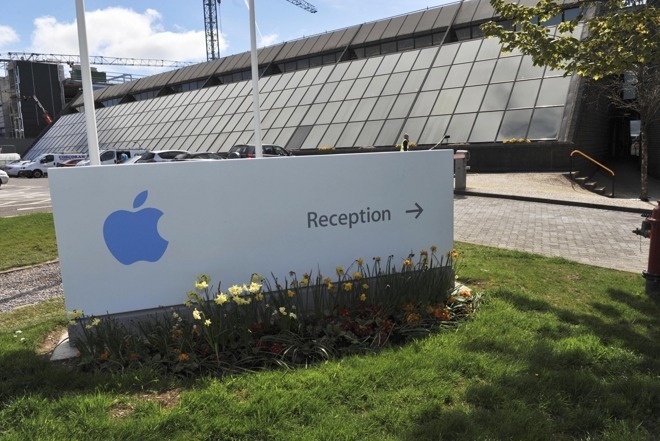Apple has assigned a definitive date to the planned relocation of its international iTunes assets, saying the iTunes Store, Apple Music, the App Store and iBooks Store businesses will make the transition to Cork, Ireland, in early February.
The official relocation timeline was disclosed in a note sent out to developers on Thursday. Apple Distribution International will conduct the transfer of its international iTunes business, which serves more than 100 countries, from Luxembourg to Cork on Feb. 5, Apple says.
After managing Apple's overseas operations since 2004, the Luxembourg branch will cease to be on Feb. 4.
The company is making the transition as seamless as possible for content owners. For example, developer contracts were automatically transferred to Apple Distribution International in September. In addition, customers looking to buy apps made by developers based in Ireland can do so free of Irish VAT thanks to Apple's special exporter status.
Apple informed developers of the forthcoming move in September, with reports at the time estimating the transfer to be worth some $9 billion in assets.
The transfer comes amid rising tensions between Apple, Ireland and the European Union. Last August, the European Commission concluded a years-long investigation into Apple's Irish business, slamming the company with a $14.5 billion bill for back taxes.
According to investigators, the sweetheart tax deals Apple from which Apple benefits are in breach of regional regulations and amount to illegal state aid.
Ireland is one stop in the infamous — but legal — "Double Irish with a Dutch Sandwich" strategy multinational corporations like Apple leverage to save billions of dollars in taxes each year. At its most basic level, the "Double Irish" provision allows companies with operations in Ireland to route profits to another Irish subsidiary. This subsidiary claims tax residency in a tax-free nation. Companies like Apple and Google assign patents to these secondary subsidiaries to funnel profit on royalties to tax havens such as the Caribbean.
Apple adds a wrinkle to the process by first piping international profits through yet another subsidiary in the Netherlands before routing the funds through the Irish subsidiary. Ireland and the Netherlands hold treaties that allow money to cross borders tax free.
Beyond bouncing income around the world, Apple enjoys an incredibly low tax rate in Ireland. In 2014, for example, the company paid 0.005 percent on its European profits, much lower than Ireland's standard corporate tax rate.
For its part, Apple contends its tax practices are above board. To that end, both Apple and Ireland are appealing the EU ruling.
 Mikey Campbell
Mikey Campbell







-m.jpg)






 Marko Zivkovic
Marko Zivkovic

 Malcolm Owen
Malcolm Owen

 Amber Neely
Amber Neely

 Wesley Hilliard
Wesley Hilliard










26 Comments
1/2%??? That would be nice. Nothing against Apple but I would hardly call that its fair share. Well done though.
Ok, I'm an Apple fan and stockholder but 0.005% on profits is rediculus.